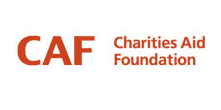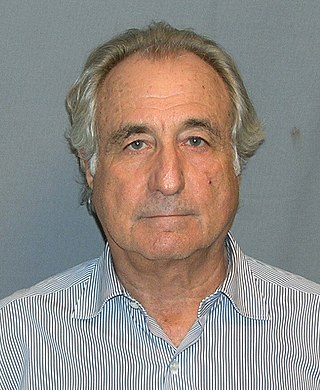Related Research Articles
Philanthropy is a form of altruism that consists of "private initiatives for the public good, focusing on quality of life". Philanthropy contrasts with business initiatives, which are private initiatives for private good, focusing on material gain; and with government endeavors that are public initiatives for public good, such as those that focus on the provision of public services. A person who practices philanthropy is a philanthropist.

Tides Foundation is a left-leaning donor advised fund based in the United States that manages over $1.4 billion in assets. It was founded in San Francisco in 1976 by Drummond Pike. Tides distributes money from anonymous donors to other organizations, which are often politically progressive. An affiliated group, Tides Advocacy, is a "massive progressive incubator." Tides has received substantial funding from George Soros.

Fundraising or fund-raising is the process of seeking and gathering voluntary financial contributions by engaging individuals, businesses, charitable foundations, or governmental agencies. Although fundraising typically refers to efforts to gather money for non-profit organizations, it is sometimes used to refer to the identification and solicitation of investors or other sources of capital for for-profit enterprises.
Thomas Stephen Monaghan is an American entrepreneur who founded Domino's Pizza in 1960. He also owns the Domino's Farms Office Park, located in the Ann Arbor Charter Township, Michigan, which he first started building during 1984. He also owned the Detroit Tigers of Major League Baseball (MLB) from 1983 to 1992.
The American Diabetes Association (ADA) is a United States-based nonprofit that seeks to educate the public about diabetes and to help those affected by it through funding research to manage, cure and prevent diabetes, including type 1 diabetes, type 2 diabetes, gestational diabetes, and pre-diabetes. It is a network of 565,000 volunteers which includes 20,000 healthcare professionals and administration staff members.

The Pew Charitable Trusts is an independent non-profit, non-governmental organization (NGO), founded in 1948.
In the United States, a donor-advised fund is a charitable giving vehicle administered by a public charity created to manage charitable donations on behalf of organizations, families, or individuals. To participate in a donor-advised fund, a donating individual or organization opens an account in the fund and deposits cash, securities, or other financial instruments. They surrender ownership of anything they put in the fund, but retain advisory privileges over how their account is invested, and how it distributes money to charities.

The Charities Aid Foundation (CAF) is a registered UK charity that operates in the United Kingdom, the United States of America and Canada. It works with companies, private philanthropists, regular donors, fellow foundations, governments, charities and not-for-profit enterprises to enable them to give more. Its stated purpose is to “accelerate progress in society towards a fair and sustainable future for all.”
Norman Yung Yuen Hsu is a convicted pyramid investment promoter who associated himself with the apparel industry. His business activities were intertwined with his role as a major fundraiser for the Democratic Party, and he gained notoriety after suspicious patterns of bundled campaign contributions were reported in 2007. Subsequently he was discovered to have been a long-time fugitive in connection with a 1992 fraud conviction. After turning himself in to California authorities in 2007 he fled the state again and was quickly recaptured.
GiveWell is an American non-profit charity assessment and effective altruism-focused organization. GiveWell focuses primarily on the cost-effectiveness of the organizations that it evaluates, rather than traditional metrics such as the percentage of the organization's budget that is spent on overhead.

Bernard Lawrence Madoff was an American financial criminal and financier who was the admitted mastermind of the largest known Ponzi scheme in history, worth an estimated $65 billion. He was at one time chairman of the Nasdaq stock exchange. Madoff's firm had two basic units: a stock brokerage and an asset management business; the Ponzi scheme was centered in the asset management business.

The Madoff investment scandal was a major case of stock and securities fraud discovered in late 2008. In December of that year, Bernie Madoff, the former Nasdaq chairman and founder of the Wall Street firm Bernard L. Madoff Investment Securities LLC, admitted that the wealth management arm of his business was an elaborate multi-billion-dollar Ponzi scheme.

Stanley Chais was an American investment advisor, money manager, and philanthropist. He operated "feeder funds" which collected money for funds related to the Madoff investment scandal. The widow, family, and estate of Chais settled with Madoff trustee Irving Picard in 2016 for $277 million.

Philanthropy in the United States is the practice of voluntary, charitable giving by individuals, corporations and foundations to benefit important social needs. Its long history dates back to the early colonial period, when Puritans founded Harvard College and other institutions. Philanthropy has been a major source of funding for various sectors, such as religion, higher education, health care, and the arts. Philanthropy has also been influenced by different social movements, such as abolitionism, women’s rights, civil rights, and environmentalism. Some of the most prominent philanthropists in American history include George Peabody, Andrew Carnegie, John D. Rockefeller, Henry Ford, Herbert Hoover, and Bill Gates.
Donors Trust is an American nonprofit donor-advised fund. It was founded in 1999 with the goal of "safeguarding the intent of libertarian and conservative donors". As a donor advised fund, Donors Trust is not legally required to disclose the identity of its donors, and most of its donors remain anonymous. It distributes funds to various conservative and libertarian organizations, and has been characterized as the "dark money ATM" of the political right.
In philanthropy, donor intent is the purpose, sometimes publicly expressed, for which a philanthropist intends a charitable gift or bequest. Donor intent is most often expressed in gift restrictions, terms, or agreements between a donor and donee, but it may also be expressed separately in the words, actions, beliefs, and giving practices of a philanthropist. Donor intent is protected in American law regarding charitable trusts, and trustees' primary fiduciary obligation is to carry out a donor's wishes.

National Christian Foundation (NCF) is a US non-profit organization that assists donors in donating to charitable causes. NCF accepts non-cash assets and is the nation's largest provider of donor-advised funds focused primarily on Christian donors. Since 1982, NCF has granted over $14.5 billion to causes and charities.
Albert J. Meyer was a forensic accountant and investor who is credited with uncovering fraud at the Foundation for New Era Philanthropy, one of the largest ponzi schemes in U.S. history, as well as notable accounting irregularities at several large public companies. Meyer died on February 3, 2022, from lung cancer.
References
- 1 2 Carton, Barbara (May 19, 1995). "Who's News: Unlikely Hero: A Persistent Accountant Brought New Era's Problems to Light". Wall Street Journal. Retrieved December 16, 2021.
- ↑ "Albert J. Meyer".
- 1 2 3 4 5 6 "Faith-Based Fraud" by Warren Smith, as quoted in "25 Years Ago: John Bennett and the Foundation for New Era Philanthropy"
- 1 2 "25 Years Ago: John Bennett and the Foundation for New Era Philanthropy – MinistryWatch" . Retrieved 2024-09-08.
- ↑ Walsh, Sharon (May 18, 1995). "AFTER 2 YEARS, THE WHISTLE'S HEARD". The Washington Post. Retrieved 2 February 2018.